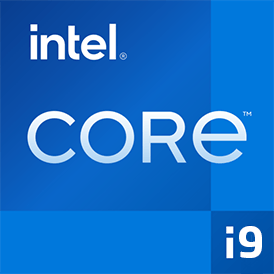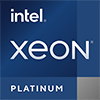
Intel Core i9-11900KB Benchmark, test e specifiche
Ultimo aggiornamento:
Intel Core i9-11900KB è un core processor 8. Può gestire 16 thread contemporaneamente ed è stato introdotto il Q2/2021. Si basa sul 11. Gen della serie Intel Core i9 e richiede una scheda madre con il socket BGA 1787.

| Cognome: | Intel Core i9-11900KB |
|---|---|
| Famiglia: | Intel Core i9 (78) |
| Gruppo CPU: | Intel Core i 11000H (17) |
| Architettura : | Tiger Lake H |
| Segmento: | Mobile |
| Generazione: | 11 |
| Predecessore: | -- |
| Successore: | -- |
CPU Cores e frequenza di base
I 8 core della CPU del Intel Core i9-11900KB clock con 3,30 GHz (5,30 GHz). Il numero di core della CPU e la frequenza di clock del processore sono in gran parte responsabili delle prestazioni complessive.
| CPU Cores / Threads: | 8 / 16 |
|---|---|
| Architettura principale: | normal |
| Cores: | 8x |
| Hyperthreading / SMT: | Si |
|---|---|
| Overclocking: | Si |
| Frequenza: | 3,30 GHz |
| Turbo Frequenza (1 Core ): | 5,30 GHz |
| Turbo Frequenza (8 Cores): | 4,90 GHz |
Grafica interna
Con Intel UHD Graphics 11th Gen (32 EU), Intel Core i9-11900KB ha una grafica integrata. Questo ha 32 processori SM, che hanno un totale di 256 texture shader. L'iGPU non solo abilita i giochi, ma accelera anche in modo significativo la riproduzione di video, ad esempio.
| nome GPU: | Intel UHD Graphics 11th Gen (32 EU) |
|---|---|
| Frequenza GPU : | 0,35 GHz |
| GPU (Turbo ): | 1,45 GHz |
| Unità di esecuzione: | 32 |
| Shader: | 256 |
| Hardware Raytracing: | No |
| Data di lancio : | Q2/2021 |
| Max. visualizzazioni: | 3 |
|---|---|
| Generation: | 11 |
| Direct X: | 12 |
| Tecnologia : | 10 nm |
| Max. GPU Memoria: | 64 GB |
| Frame Generation: | No |
Hardware codec support
I processori con grafica integrata possono elaborare e riprodurre video in modo più rapido ed efficiente. Ciò può avere un effetto positivo sulla durata della batteria dei notebook, ad esempio.
| h265 / HEVC (8 bit): | Decodificare / Codificare |
|---|---|
| h265 / HEVC (10 bit): | Decodificare / Codificare |
| h264: | Decodificare / Codificare |
| VP8: | Decodificare / Codificare |
| VP9: | Decodificare / Codificare |
| AV1: | Decodificare |
|---|---|
| AVC: | Decodificare / Codificare |
| VC-1: | Decodificare |
| JPEG: | Decodificare / Codificare |
Memoria & PCIeIntel Core i9-11900KB supporta fino a 128 GB memoria in un massimo di 2 (Dual Channel) canali di memoria. Ciò si traduce in una larghezza di banda di memoria massima di 51,2 GB/s. |
|
| Tipo di memoria : | Banda di memoria: |
|---|---|
| DDR4-3200 | 51,2 GB/s |
| Max. Memoria: | 128 GB |
| Canali di memoria : | 2 (Dual Channel) |
| ECC: | No |
| PCIe: | 3.0 x 16 |
| PCIe Larghezza di banda: | 15,8 GB/s |
Gestione termicaCon il TDP, il produttore del processore specifica la soluzione di raffreddamento necessaria per il processore. Intel Core i9-11900KB ha un TDP di 65 W. |
|
|---|---|
| TDP (PL1 / PBP): | 65 W |
| TDP (PL2): | -- |
| TDP up: | -- |
| TDP down: | 55 W |
| Tjunction max.: | 100 °C |
Dettagli tecnici
Intel Core i9-11900KB ha una cache grande 24,00 MB. Il processore è prodotto in %%Manufacturing%%. La produzione moderna aumenta l'efficienza del processore.
| Tecnologia : | 10 nm |
|---|---|
| Design a chip: | Monolitico |
| Presa: | BGA 1787 |
| L2-Cache: | 4,00 MB |
| L3-Cache: | 20,00 MB |
| AES-NI: | Si |
| Sistemi operativi: | Windows 10, Windows 11, Linux |
| Virtualizzazione: | VT-x, VT-x EPT, VT-d |
|---|---|
| Set di istruzioni (ISA): | x86-64 (64 bit) |
| Estensioni ISA: | SSE4.1, SSE4.2, AVX2, AVX-512 |
| Data di lancio : | Q2/2021 |
| Prezzo di rilascio: | 583 $ |
| Numero di parte: | -- |
| Documenti: | Scheda tecnica |
Valuta questo processore
Risultati di benchmark

I risultati del benchmark per Intel Core i9-11900KB sono stati attentamente controllati da noi. Pubblichiamo solo risultati di benchmark che sono stati creati da noi o che sono stati inviati da un visitatore e poi controllati da un membro del team. Tutti i risultati sono basati e rispettano le nostre linee guida di benchmark.
Cinebench R23 (Single-Core)
Cinebench R23 è il successore di Cinebench R20 ed è anch'esso basato su Cinema 4D. Cinema 4D è un software usato a livello mondiale per creare forme in 3D. Il test single-core utilizza solo un nucleo elaborativo della CPU. A tal fine, il numero di nuclei elaborativi o la capacità di hyperthreading non sono rilevanti.

|
AMD Ryzen 9 6980HS
8C 16T @ 5,00 GHz |
||

|
AMD Ryzen 9 6980HX
8C 16T @ 5,00 GHz |
||

|
Intel Core i5-1235U
10C 12T @ 4,40 GHz |
||
|
|
Intel Core i9-11900KB
8C 16T @ 5,30 GHz |
||

|
Intel Core i7-11700B
8C 16T @ 5,30 GHz |
||

|
AMD Ryzen 9 PRO 6950HS
8C 16T @ 4,90 GHz |
||

|
AMD Ryzen 9 PRO 6950H
8C 16T @ 4,90 GHz |
||
Cinebench R23 (Multi-Core)
Cinebench R23 è il successore di Cinebench R20 ed è anch'esso basato su Cinema 4D. Cinema 4D è un software usato a livello mondiale per creare forme in 3D. Il test multi-core coinvolge tutti i nuclei elaborativi della CPU e si avvale del hyperthreading.

|
Intel Core i5-12490F
6C 12T @ 4,20 GHz |
||

|
Intel Core i7-11850H
8C 16T @ 3,60 GHz |
||

|
Intel Core i9-11900H
8C 16T @ 3,60 GHz |
||
|
|
Intel Core i9-11900KB
8C 16T @ 4,90 GHz |
||

|
Intel Core i7-10700F
8C 16T @ 4,60 GHz |
||

|
Intel Core i7-10700
8C 16T @ 4,60 GHz |
||

|
Intel Core i9-9900
8C 16T @ 4,00 GHz |
||
Geekbench 5, 64bit (Single-Core)
Geekbench 5 è un benchmark multi-piattaforma che usa in modo intensivo la memoria del sistema.Il test single-core utilizza solo un nucleo elaborativo della CPU. A tal fine, il numero di nuclei elaborativi o la capacità di hyperthreading non sono rilevanti.

|
Intel Core i7-13800HE
14C 20T @ 5,00 GHz |
||

|
Apple A16 Bionic
6C 6T @ 3,46 GHz |
||

|
Intel Core i7-13700HX
16C 24T @ 5,00 GHz |
||
|
|
Intel Core i9-11900KB
8C 16T @ 5,30 GHz |
||

|
Intel Core i9-12900T
16C 24T @ 4,90 GHz |
||

|
Intel Core i7-11700B
8C 16T @ 5,30 GHz |
||

|
Intel Core i9-11900KF
8C 16T @ 5,30 GHz |
||
Geekbench 6 (Single-Core)
Geekbench 6 è un punto di riferimento per computer, notebook e smartphone moderni. Ciò che è nuovo è un utilizzo ottimizzato delle architetture CPU più recenti, ad esempio basate sul concetto big.LITTLE e combinando core CPU di diverse dimensioni. Il benchmark single-core valuta solo le prestazioni del core della CPU più veloce, il numero di core della CPU in un processore è irrilevante qui.

|
Intel Core i3-12300
4C 8T @ 4,40 GHz |
||

|
Intel Core i7-12800H
14C 20T @ 4,80 GHz |
||

|
AMD EPYC 9254
24C 48T @ 4,15 GHz |
||
|
|
Intel Core i9-11900KB
8C 16T @ 5,30 GHz |
||

|
Intel Core i5-12450H
8C 12T @ 4,40 GHz |
||

|
Intel Core i5-1340P
12C 16T @ 4,60 GHz |
||

|
AMD Ryzen 9 5950X
16C 32T @ 4,90 GHz |
||
Geekbench 6 (Multi-Core)
Geekbench 6 è un punto di riferimento per computer, notebook e smartphone moderni. Ciò che è nuovo è un utilizzo ottimizzato delle architetture CPU più recenti, ad esempio basate sul concetto big.LITTLE e combinando core CPU di diverse dimensioni. Il benchmark multi-core valuta le prestazioni di tutti i core della CPU del processore. I miglioramenti del thread virtuale come AMD SMT o l'Hyper-Threading di Intel hanno un impatto positivo sul risultato del benchmark.

|
AMD Ryzen 7 7840U
8C 16T @ 3,30 GHz |
||

|
AMD Ryzen 9 3900X
12C 24T @ 4,00 GHz |
||

|
AMD Ryzen 9 3900XT
12C 24T @ 4,60 GHz |
||
|
|
Intel Core i9-11900KB
8C 16T @ 4,90 GHz |
||

|
Intel Core i9-10900KF
10C 20T @ 4,90 GHz |
||

|
AMD Ryzen 7 5700X3D
8C 16T @ 3,00 GHz |
||

|
AMD Ryzen 9 PRO 3900
12C 24T @ 3,10 GHz |
||
Cinebench R20 (Single-Core)
Cinebench R20 è il successore di Cinebench R15 ed è anch'esso basato su Cinema 4D. Cinema 4D è un software usato a livello mondiale per creare forme in 3D. Il test single-core utilizza solo un nucleo elaborativo della CPU. A tal fine, il numero di nuclei elaborativi o la capacità di hyperthreading non sono rilevanti.

|
AMD Ryzen 9 6900HX
8C 16T @ 4,90 GHz |
||

|
Intel Core i3-12100
4C 8T @ 4,30 GHz |
||

|
Intel Core i3-12100F
4C 8T @ 4,30 GHz |
||
|
|
Intel Core i9-11900KB
8C 16T @ 5,30 GHz |
||

|
Intel Core i5-1235U
10C 12T @ 4,40 GHz |
||

|
AMD Ryzen 9 5900X
12C 24T @ 4,80 GHz |
||

|
AMD Ryzen 7 5800X
8C 16T @ 4,70 GHz |
||
Cinebench R20 (Multi-Core)
Cinebench R20 è il successore di Cinebench R15 ed è anch'esso basato su Cinema 4D. Cinema 4D è un software usato a livello mondiale per creare forme in 3D. Il test multi-core coinvolge tutti i nuclei elaborativi della CPU e si avvale del hyperthreading.

|
AMD Ryzen 7 6800HS
8C 16T @ 3,60 GHz |
||

|
AMD Ryzen 7 PRO 6850HS
8C 16T @ 3,60 GHz |
||

|
AMD EPYC 7351
16C 32T @ 2,90 GHz |
||
|
|
Intel Core i9-11900KB
8C 16T @ 4,90 GHz |
||

|
AMD Ryzen 7 5800HS
8C 16T @ 3,50 GHz |
||

|
Intel Core i9-9820X
10C 20T @ 4,00 GHz |
||

|
Intel Xeon W-11855M
6C 12T @ 3,80 GHz |
||
iGPU - Prestazioni FP32 (GFLOPS a precisione singola)
Le prestazioni di calcolo teoriche dell'unità grafica interna del processore con precisione semplice (32 bit) in GFLOPS. GFLOPS indica quanti miliardi di operazioni in virgola mobile che l'iPPU può eseguire al secondo.

|
Intel Core i7-4750HQ
Intel Iris Pro Graphics 5200 @ 1,20 GHz |
||

|
Apple A14 Bionic
Apple A14 @ 1,46 GHz |
||

|
Qualcomm Snapdragon 8 Gen 1
Qualcomm Adreno 730 @ 0,82 GHz |
||
|
|
Intel Core i9-11900KB
Intel UHD Graphics 11th Gen (32 EU) @ 1,45 GHz |
||

|
Intel Core i7-12650HX
Intel UHD Graphics 770 @ 1,45 GHz |
||

|
Intel Core i7-12800HX
Intel UHD Graphics 770 @ 1,45 GHz |
||

|
Intel Core i5-11500B
Intel UHD Graphics 11th Gen (32 EU) @ 1,45 GHz |
||
Risultati stimati da PassMark CPU Mark
Alcune delle CPU elencate di seguito sono stati sottoposti a benchmarking da CPU-monkey. Tuttavia, la maggior parte delle CPU non sono state testate e i risultati sono stati stimati utilizzando una formula segreta di proprietà di CPU-monkey. Come tali, essi non riflettono con precisione i valori attuali di Passmark CPU Mark e non sono stati approvati da PAssMark Software Pty Ltd.

|
AMD Ryzen 9 PRO 6950HS
8C 16T @ 4,20 GHz |
||

|
Intel Xeon Gold 6146
12C 24T @ 3,60 GHz |
||

|
Intel Xeon Platinum 8176
28C 56T @ 2,50 GHz |
||
|
|
Intel Core i9-11900KB
8C 16T @ 4,90 GHz |
||

|
AMD Ryzen 7 6800HS
8C 16T @ 3,60 GHz |
||

|
Intel Xeon W-11955M
8C 16T @ 3,20 GHz |
||

|
Intel Xeon E5-2698 v4
20C 40T @ 2,80 GHz |
||
Blender 2.81 (bmw27)
Blender è un software di grafica 3D gratuito per il rendering (creazione) di corpi 3D, che può anche essere strutturato e animato nel software. Il benchmark di Blender crea scene predefinite e misura i tempi richiesti per l'intera scena. Più breve è il tempo richiesto, meglio è. La scena di riferimento, abbiamo selezionato bmw27.

|
Intel Core i9-12900HK
14C 20T @ 3,80 GHz |
||

|
Intel Xeon E5-2690 v3
12C 24T @ 3,00 GHz |
||

|
AMD Ryzen 9 6900HS
8C 16T @ 3,80 GHz |
||
|
|
Intel Core i9-11900KB
8C 16T @ 4,90 GHz |
||

|
AMD Ryzen 9 4900H
8C 16T @ 4,00 GHz |
||

|
AMD Ryzen 9 4900HS
8C 16T @ 3,90 GHz |
||

|
AMD Ryzen 7 2700X
8C 16T @ 3,85 GHz |
||
Cinebench R15 (Single-Core)
Cinebench R15 è il successore di Cinebench 11.5 ed è anch'esso basato su Cinema 4D. Cinema 4D è un software usato a livello mondiale per creare forme in 3D. Il test single-core utilizza solo un nucleo elaborativo della CPU. A tal fine, il numero di nuclei elaborativi o la capacità di hyperthreading non sono rilevanti.

|
AMD Ryzen 5 5600X
6C 12T @ 4,60 GHz |
||

|
Intel Core i9-12900H
14C 20T @ 5,00 GHz |
||

|
Intel Core i9-12900HK
14C 20T @ 5,00 GHz |
||
|
|
Intel Core i9-11900KB
8C 16T @ 5,30 GHz |
||

|
Intel Core i5-13400F
10C 16T @ 4,60 GHz |
||

|
Intel Core i5-13400
10C 16T @ 4,60 GHz |
||

|
AMD Ryzen 7 5700X
8C 16T @ 4,60 GHz |
||
Cinebench R15 (Multi-Core)
Cinebench R15 è il successore di Cinebench 11.5 ed è anch'esso basato su Cinema 4D. Cinema 4D è un software usato a livello mondiale per creare forme in 3D. Il test multi-core coinvolge tutti i nuclei elaborativi della CPU e si avvale del hyperthreading.

|
AMD Ryzen 7 3800X
8C 16T @ 4,20 GHz |
||

|
AMD Ryzen 7 5800H
8C 16T @ 3,80 GHz |
||

|
AMD Ryzen 9 5980HS
8C 16T @ 4,00 GHz |
||
|
|
Intel Core i9-11900KB
8C 16T @ 4,90 GHz |
||

|
Intel Core i9-10900T
10C 20T @ 3,70 GHz |
||

|
Intel Xeon Platinum 8153
16C 32T @ 2,40 GHz |
||

|
AMD Ryzen 7 4700
8C 16T @ 3,60 GHz |
||
Benchmarks

Cinebench R23 (SC)
586 inserimenti
586 inserimenti

Cinebench R23 (MC)
565 inserimenti
565 inserimenti

Geekbench 5 (SC)
2.488 inserimenti
2.488 inserimenti

Geekbench 6 (SC)
1.754 inserimenti
1.754 inserimenti

Geekbench 6 (MC)
1.702 inserimenti
1.702 inserimenti

Cinebench R20 (SC)
656 inserimenti
656 inserimenti

Cinebench R20 (MC)
604 inserimenti
604 inserimenti

FP32 SP (iGPU)
2.026 inserimenti
2.026 inserimenti

PassMark CPU-Mark
2.391 inserimenti
2.391 inserimenti

Blender 2.81 (bmw27)
190 inserimenti
190 inserimenti

Cinebench R15 (SC)
1.106 inserimenti
1.106 inserimenti

Cinebench R15 (MC)
1.101 inserimenti
1.101 inserimenti
Confronti più popolari
Torna all'indice




